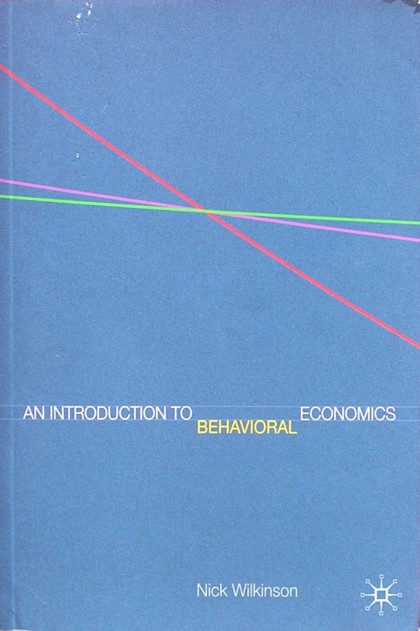

The common economic theory presents man as a rational egoistic individualist, certainly when the explanation in the introductory textbooks is considered. Although everybody knows that this image of man is wrong, yet most people are inclined to accept the theoretical presentation. Incidental sceptics are convinced with the remark, that the assumption is evidently only valid for the economic domain - as if a strict division would exist between society and the economy. Although the psychology and the sociology have questioned the caricatural hypothesis of the homo economicus for centuries, the economists stubbornly stick to their belief1. However, recently so much new empirical knowledge has become available about the human nature, that the economic dogma indeed begins to waver. The new field of research is called behavioural economics.
The increased popularity of this theme is mainly due to the efforts of the Nobel-price winner Daniel Kahneman. His approach is an interesting supplement of happiness economics, which recently has also become popular. Whereas happiness economics uses large-scale inquiries in order to discover the human motives, behavioural economics uses observations of interactions, often in laboratory circumstances. It analyzes the actions in order to derive the motives and to model them. The book An introduction to behavioral economics by Nick Wilkinson is one of the first textbooks, which make an inventory of the recent insights with regard to human behaviour in the economy. It is undeniably an exciting matter. However, the reader is warned, that it is indeed a criticism of standard economics, but rarely offers an alternative theory.
Since the psychological motives are so important for the economic theories, it does not surprise that behavioural economics makes an in-depth analysis of the human satisfaction and discontent. They represent the emotion, which in the economic terminology is called the (dis)utility, or sometimes (dis)pleasure, and in happiness economics of course (dis)satisfaction. Here behavioural economics focuses on the feeling of utility in risky and uncertain situations. Namely, it turns out that people are very inclined to apparently behave irrationally. The behavioural economists study the question, why such behaviour deviates from that, which would be expected "logically"2. In this research utility functions have been developed, which are more realistic than the standard theory. Striking improvements are also made in the modelling of the probability calculus, that humans apply in practice.
Another fascinating theme is the functioning of human book-keeping. The question is here, how people weigh the direct satisfaction of needs, and the future satisfaction. Humans obviously prefer an immediate satisfaction, because saving seems a waste. The manner to discount future pleasures is an essential aspect in many economic models. Unfortunately it turns out that this book-keeping is a rather complicated process. Thanks to behavioural economics the insight in the diversity of behaviours becomes somewhat more realistic.
Furthermore it makes an important contribution to the so-called game theory, which is often applied in economics, for instance in modelling markets with incomplete competition. Knowledge is enriched with phenomena such as learning and signalling. Even more interesting is the modelling of feelings of fairness. They are everywhere. It turns out that people are not individualists, but always take into account their environment. Hardened egoists will fail. This has far-reaching consequences3.
In the final chapters of the book Wilkinson again considers the various forms of irrational behaviour. He also explains which controverses he would like to solve quickly. For, behavioural economics is so complex and many-sided, that it raises as much questions as it answers. Even in the laboratory it is very difficult to design a truly reliable experiment. Again and again the danger is that the studied phenomenon is "contaminated" by other phenomena. And thus indeed now and then the various scientific teams come to conflicting conclusions. There is an uncontrolled growth of models, which can not simply be integrated in an encompassing whole. Thus behavioural economics is a discipline, which has difficulty with solving the confusion among scientists. It is clearly not completed.
In short, a part of the theories will have to be discarded. The behavioural economists must first adapt, and reach a certain consensus, before their discipline will mature. Besides, Wilkinson draws attention to the limitation, that behavioural economics is not normative. In other words, it hardly supplies rules for policy. Nonetheless, each economist must know something about it, so that he is able to see the nuances in the statements of the standard economic theory. Incidentally, even without this need the matter is in itself already sufficiently intriguing for studying it. The experimental results are extremely surprising. And those who learn something about human nature, also increase the understanding of themselves. All that glitters is not gold.